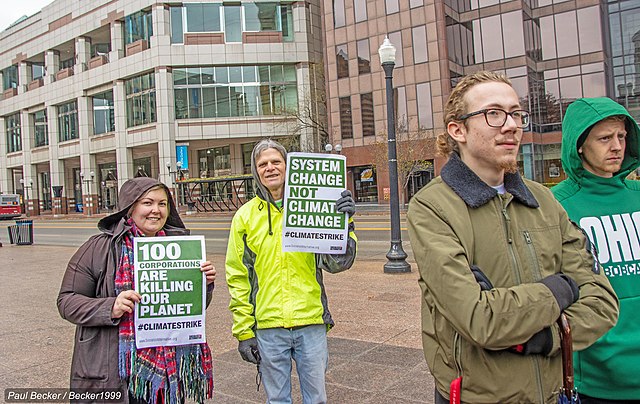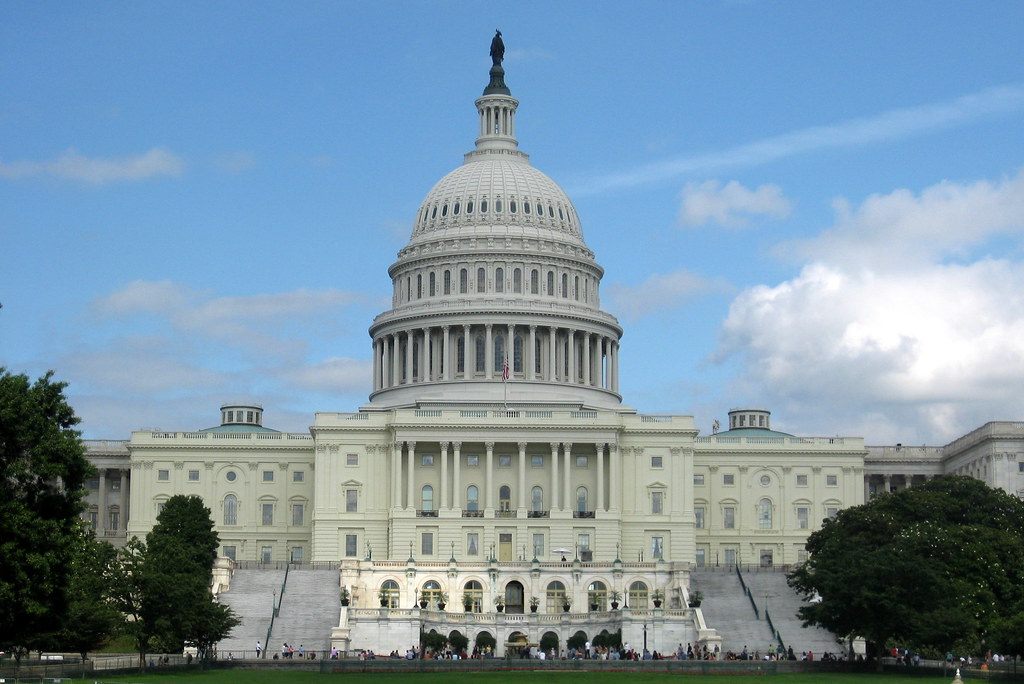
October 12, 2022
Tenant Organizers Call On Biden To Tackle Rent Inflation
The grassroots Homes Guarantee campaign has an executive branch playbook to protect tenants, but will the Biden administration acquiesce?
October 05, 2022 | Revolving Door Project Newsletter
Another Eleventh-Hour Stopgap Spending Bill
October means a lot of things in the political world: the end of a fiscal year and the beginning of a new one; SCOTUS returning from a long recess; and, every two years, the final stretch before a general election. If the congressional appropriations process worked as designed, October would also be the month when federal agencies began implementing their new budgets for the next fiscal year. If only things could work so smoothly.

September 30, 2022
Politico Rolls Out The Red Carpet For Ripple And Securities Fraud
Boosters of Ponzi products should not be granted the freedom to tout their products without ample pushback and skepticism. Because, as is all too common in Washington, when this media cover is combined with other forms of political pressure including lobbying and campaign donations, industry interests take precedence over the public’s. Politico knows where to find skeptical voices; they had Healthy Markets President and CEO Ty Gellasch on the panel that followed Alderoty’s remarks, albeit alongside three other preachers of crypto’s so-called greatness.
September 23, 2022 | Revolving Door Project Substack
Hack Watch: So About Those Rate Hikes...
Few of the pundits who sprang to Jerome Powell’s defense last year have acknowledged that their analysis was exactly wrong.

September 08, 2022 | The American Prospect
To Save The Climate, Hire More Civil Servants
The kind of civil service we build is indicative of what our climate strategy will be.

September 07, 2022
Blog Post Confirmations CrisisCongressional OversightGovernanceGovernment CapacityIndependent Agencies
The Confirmations Crisis
As we at the Revolving Door Project have long argued, the crisis surrounding the confirmations (or rather, the lack thereof) of Biden’s highly qualified nominees remains an issue of critical importance.

September 05, 2022
Biden Can Take Climate Action Across Range Of Executive Powers, New Report Shows
“Alone, these executive branch policies are wildly insufficient to the task of getting America to meet its climate goals. But all of these policies are necessary components of the puzzle, and represent the lowest-hanging fruit in terms of climate action.”

August 25, 2022 | Democracy Journal
Eleanor Eagan Hannah Story Brown
Op-Ed Department of JusticeEthics in GovernmentFinancial RegulationIndependent Agencies
Enforcement: The Untapped Resource
Chronic underfunding means that the agencies with the most laudable missions—the ones seeking to protect ordinary Americans from profit-driven exploitation—often struggle to go up against powerful corporate interests. Strengthening funding for enforcement to protect Americans from environmental, health, consumer, and labor standards violations is an existing, easily justifiable tool for changing that balance of power.

August 08, 2022 | Washington Monthly
Why Is Merrick Garland Sticking with Donald Trump on Climate Lawsuits?
It started with Boulder in early February. Then came Baltimore and San Mateo in April. Now Honolulu and Maui are the latest municipalities to overcome a crucial legal hurdle in their fight to make fossil fuel companies pay for their role in climate change. After years of obstruction, it looks like state courts will hear arguments from these cities—as well as several states—that big energy companies knowingly concealed and misrepresented the harms of their products, contributing to climate damages these regions face. Five federal appeals courts have green-lit suing the fossil fuel giants in state court, where these state and local governments have a better chance of prevailing. The stakes are massive: requiring fossil fuel companies to foot the bill for climate change–related damages to U.S. cities and states could easily run into the tens of billions.

August 05, 2022
Changes To DeJoy’s Fleet Plan Are Welcome, But Not Enough
USPS’ next-gen vehicles should be 100% electric and union-made. And DeJoy should be out the door.

July 08, 2022
The Extraordinary (Time) Costs of Senate Republican Nomination Blockades
There are at least 366 presidentially appointed positions requiring Senate confirmation that are still awaiting a nominee or have nominees already going through the long, arduous, confirmation process. However, a process that has long been notorious for how time-consuming and antiquated it is, is intentionally being made even more difficult by nefarious Republican bad actors that are weaponizing Senate rules against supremely qualified nominees specifically to hinder the health of the federal government and to devastate President Biden’s agenda.

July 06, 2022
The State of Independent Agency Nominations - Update for Spring 2022
The Revolving Door Project has warned continuously of the extraordinary consequences inherent to failing to staff the federal government. Now, more than a year and a half into Biden’s presidency, staffing failures across the government have borne many of the bitter fruits which we warned of, and continue to undermine the Biden administration’s agenda.

July 01, 2022 | The American Prospect
In The Wake Of "Dobbs," Biden Leans on Familiar Excuses for Inaction
During his campaign, now-President Biden loved likening his image to that of FDR. But when a rogue U.S. Supreme Court threatened to overturn the sweeping reforms of FDR’s New Deal, Roosevelt directly challenged their gross power grab by threatening court expansion coupled with expansive judicial reforms. The controversial move paid off; the Court subsequently backed down and FDR preserved the slate of New Deal–era reforms that kept the working class alive during the depths of the Great Depression and formed the basis for much more broadly shared prosperity in the subsequent decades.

June 30, 2022
Press Release Climate and EnvironmentCongressional OversightEthics in GovernmentExecutive BranchIndependent Agencies
RELEASE: Impact of Supreme Court’s EPA Decision Can Be Minimized Through Decisive Executive Counteractions
Today the Supreme Court issued its long-awaited opinion in West Virginia v. EPA, curbing the EPA’s authority to establish carbon emissions caps under Section 111 of the Clean Air Act. It is a significant blow, and is further evidence of how far this empowered, extremist Supreme Court will go to erode the functions of our government and contravene the public interest. But it is not a lethal blow. Many tools to stave off the climate crisis and facilitate an equitable energy transition remain available to the EPA, to the White House, and to Congress.

June 28, 2022
Rogue Regulator: Biden Cedes Chance to Enlist FMC in Inflation-Fighting Agenda
Biden had a chance to change the commission undermining his inflation messaging. Instead, he demurred.
